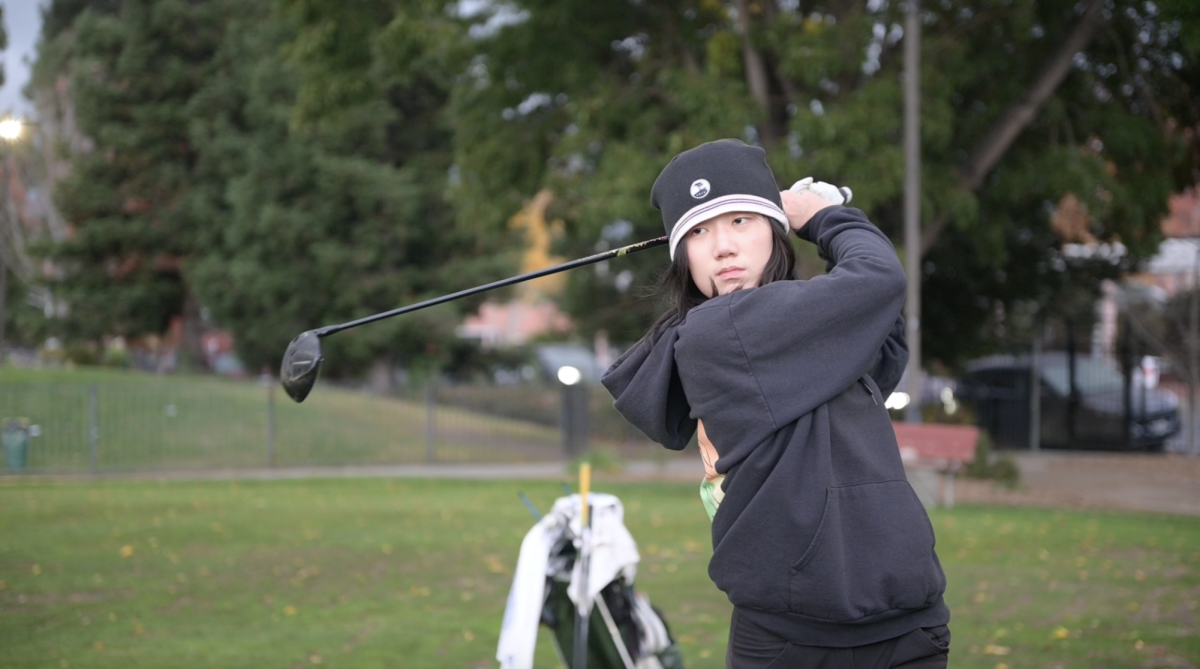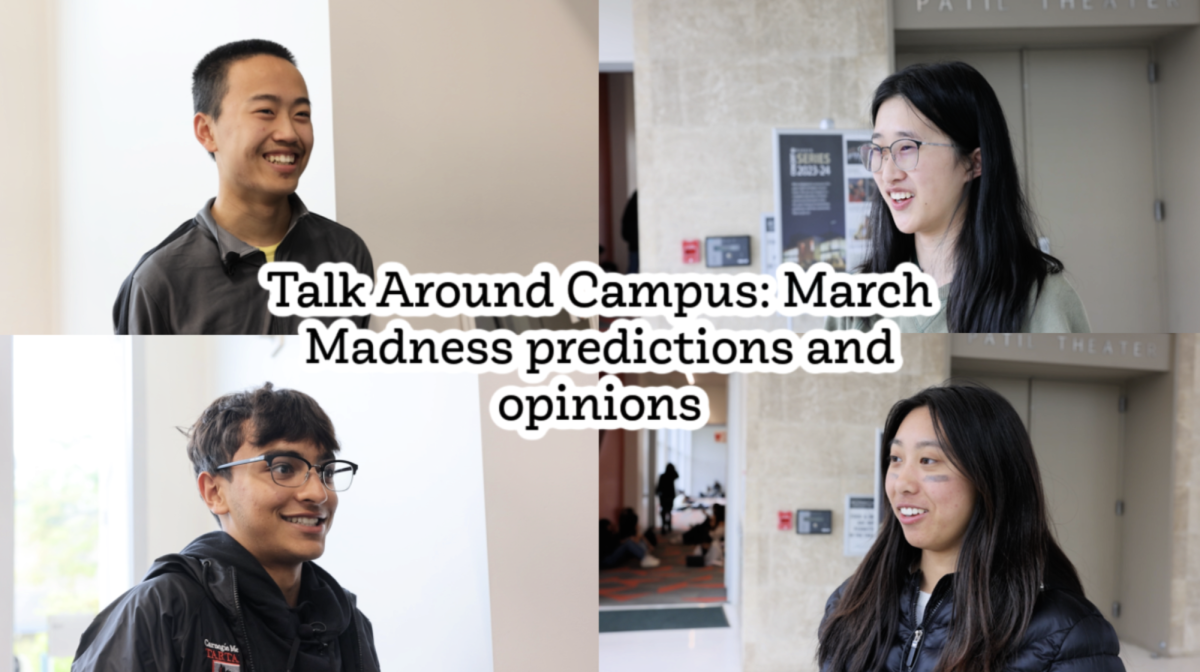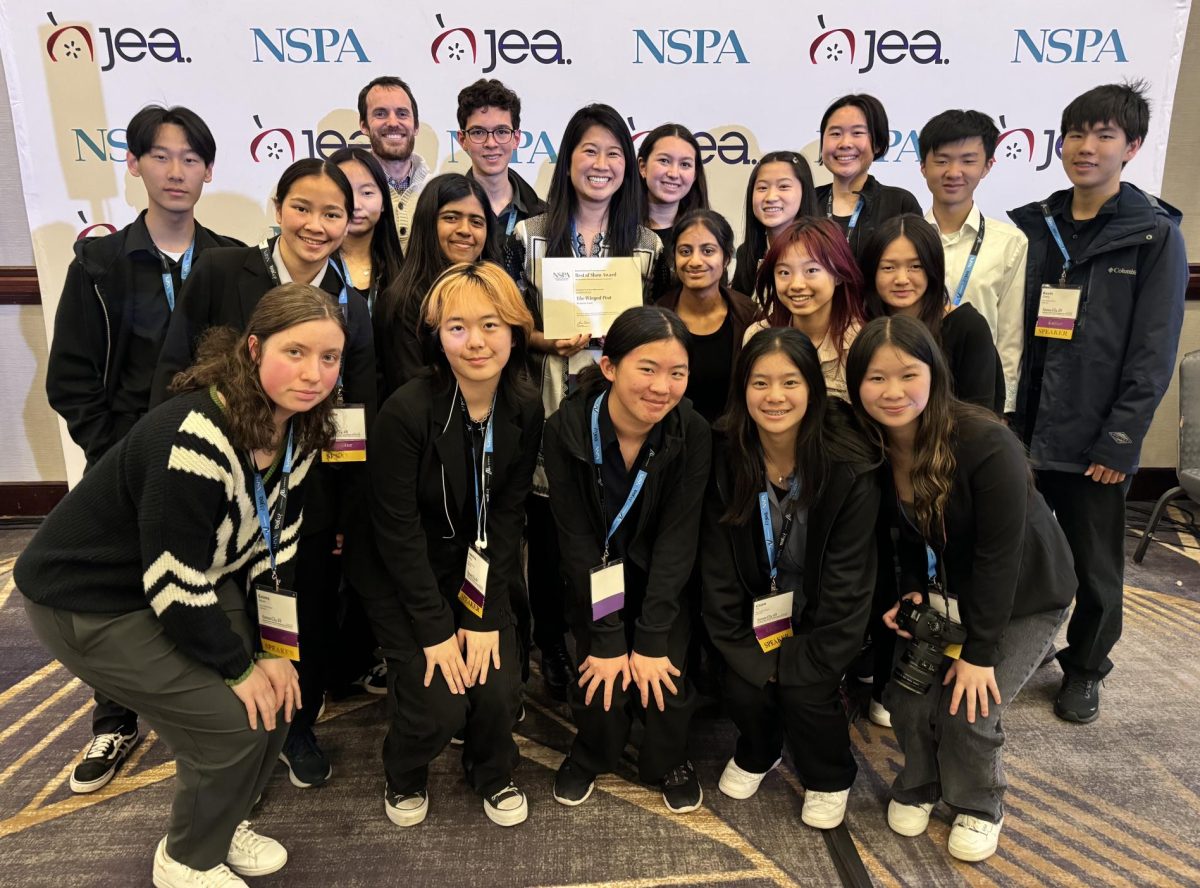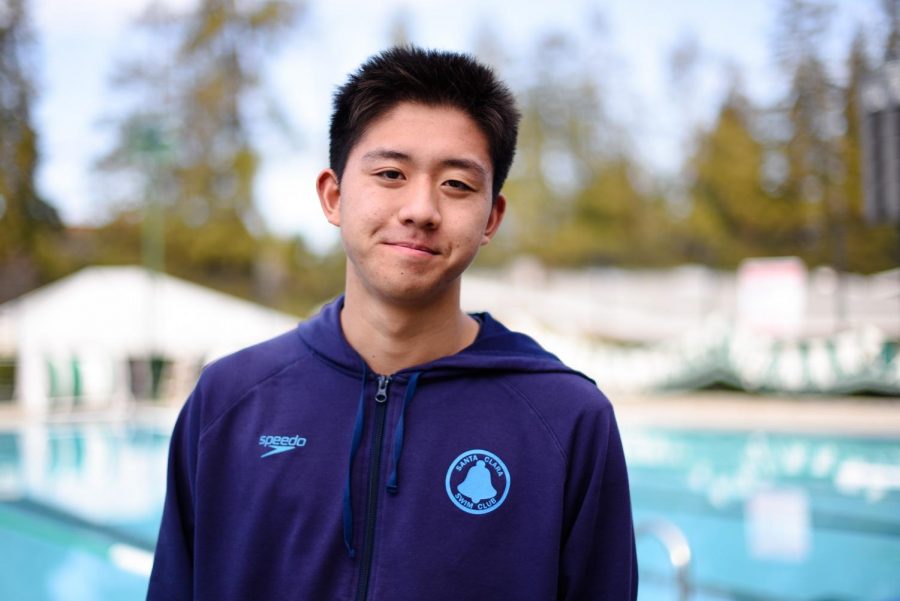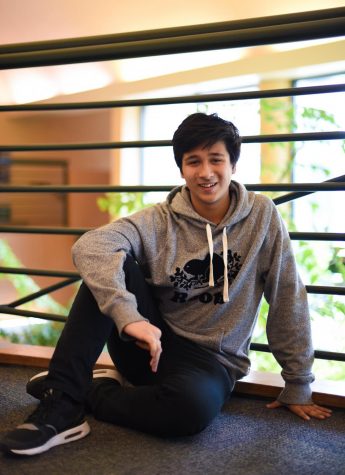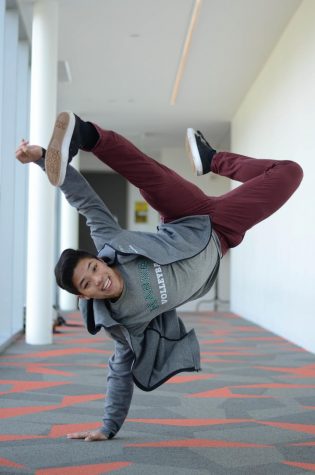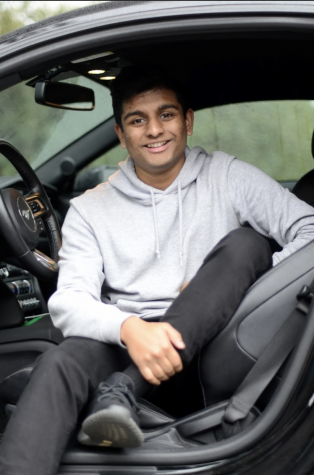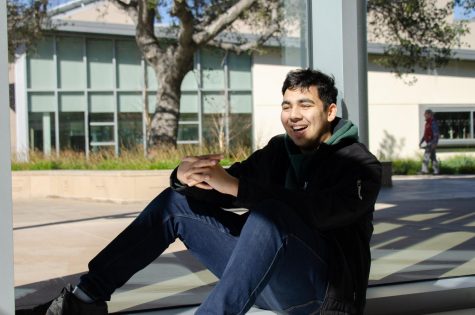Humans of Harker: Splashes of music
Alex Yu pushes past obstacles to recreate moments of excellence in swimming and cello
“If you do something, you should try to put as much effort into it as you can, because through my experiences, I’ve seen people who are really talented at what they do, but then they don’t put as much effort as they can and they kind of waste that talent,” Alex Yu (12) said. “Similarly, [there are] people who started from the bottom but then really worked their way up to the top.”
After pushing past the black, wiry gate to the swimming pool, the air tingles with chlorine, and pop music blasts through a speaker in a faraway corner. Slicing through the water in crisp butterfly strokes, Alex Yu (12) races down the length of the pool, pauses at the wall, and glances at the timer before once again pushing off into a streamline. While only practicing on a warm Monday afternoon with a bright cyan sky, each stroke reflects his unrelenting drive to improve.
Though Alex now swims competitively for the Santa Clara Swim Club and the school team, he was first introduced to the sport at age five as a way to combat his asthma. Both he and his sister were initially afraid of drowning, but they were eventually able to overcome this fear.
“We both really came to enjoy the water and even though practice can be hard, through all the rain or headaches we have…nothing feels better than when you see the scoreboard flash with a personal best time,” Alex said.
His work ethic is clear to swim team coach Tania Chadwick, who has taught Alex since he joined as a freshman.
“Alex has a very good work ethic, very honest, getting his sets done and coming to practice on time,” Chadwick said. “He is so versatile in swimming, and so for the swimming program we could put him in any relay; he could do any event.”
Similarly, Alex demonstrates his belief that “you withdraw what you deposit” in his journey with the cello. He started playing the instrument when he was eight years old, and he has faced many rough moments over the years. One of the most difficult experiences was a couple of years ago, when a new cello teacher called him a “fragmented robot” as a result of his lack in musicality and suggested that he should “eat hamburgers to beef up.”
“Just a couple of months ago, he remembered that and reflected on it and just thought it was a funny thing, because I think that I came a long way from that,” Alex said. “Even if I couldn’t make a great sound most of the time, there are those instances where there was some beautiful moment and that was what kept me going. I kept wanting to recreate that. And I feel like I’ve really improved since then.”
Despite his love for swimming and playing the cello, it sometimes came at a crossroads between his health and drive to continue. In junior year, after ramping up the amount of time he devoted to each activity, he instead experienced extreme lethargy and a loss of motivation, which led the decision to cut back.
“I realized that sometimes you just have to make compromises to do things at a healthy level at a point that you still enjoy,” Alex said. “I think that if you love something, you should keep doing it, and if you lose that motivation, then that kind of defeats the purpose of continuing to do it.”
This motivation defines one of his core principles: working as hard as possible despite the situation. As a result of this mindset, he is able to persevere through all the obstacles that have sprung up along the way and even benefit from past mistakes.
“‘If you do something, you should try to put as much effort into it as you can’, because through my experiences, I’ve seen people who are really talented at what they do, but then they don’t put as much effort as they can and they kind of waste that talent,” Alex said. “Similarly, [there are] people who started from the bottom but then really worked their way up to the top.”
However, before he was an athlete and musician, he was “the new kid” in freshman year. His voice was quiet, and he only spoke up tentatively, as described by his close friend Michael Wang (12). However, Alex has opened up over the span of four years and interacts with others, even helping fellow cellists who are struggling with the music.
“He almost manages the entire cello section, and I see him always running around doing logistics,” Michael said. “You wouldn’t know, because he’s so quiet. He’s really dedicated.”
Not only does Alex demonstrate his qualities as a leader, but he also shows his support for his friends, whether it be cheering them on at swim meets, helping them with English homework or brightening up someone’s day with a subtle yet hysterical joke.
“It might seem kind of contradictory to me being reserved,” Alex said, “but I truly believe that my friends have always supported me through what I’ve done and I feel that even though I love the cello and the swimming, I think that my relationships with my teammates and my fellow cellists–that’s also helped me persevere through those challenges.”

Nicole Tian (12) is the co-editor-in-chief of Harker Aquila. This is her fourth year on staff, and she previously served as the opinion editor, co-lifestyle...

Kathy Fang (12) is the editor-in-chief of Harker Aquila. This is her fourth year on staff. From covering local marches and protests to initiating Harker...































![Setter Emma Lee (9) sets the ball to the middle during the match against Pinewood on Sept. 12. “[I’m looking forward to] getting more skilled, learning more about my position and also becoming better friends with all of my teammates, Emma said.](https://harkeraquila.com/wp-content/uploads/2023/09/DSC_4917-2-1200x795.jpg)
































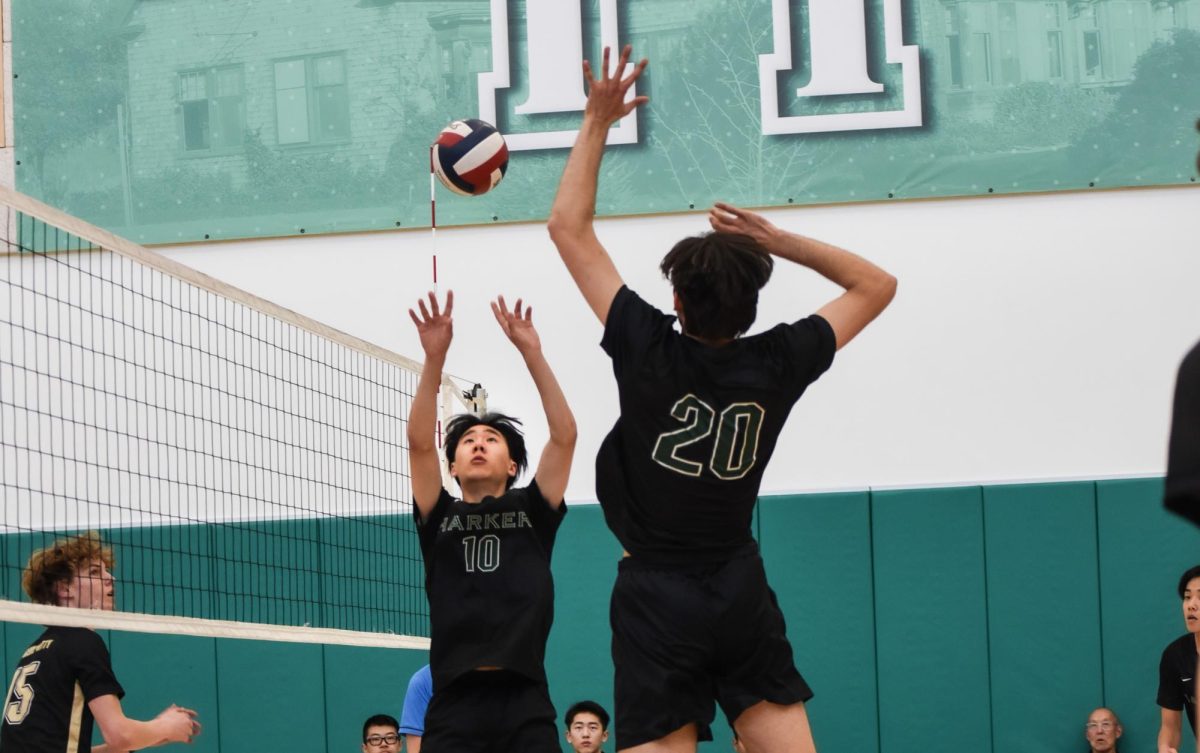
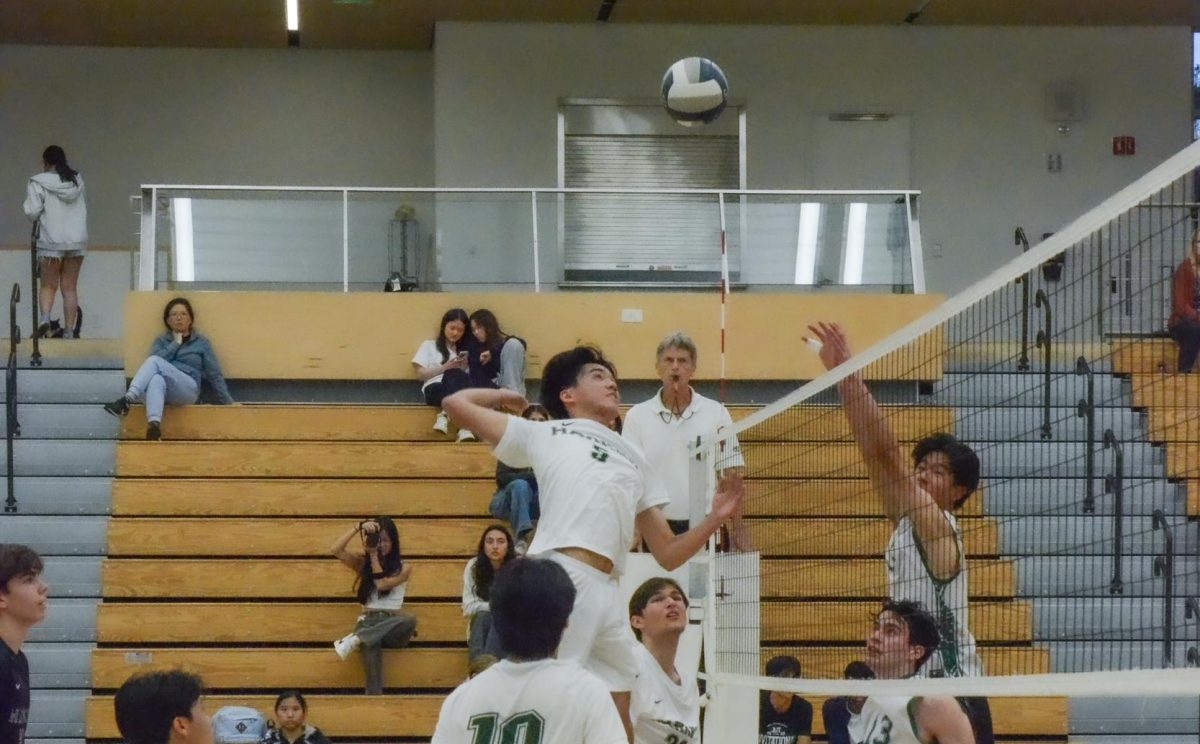
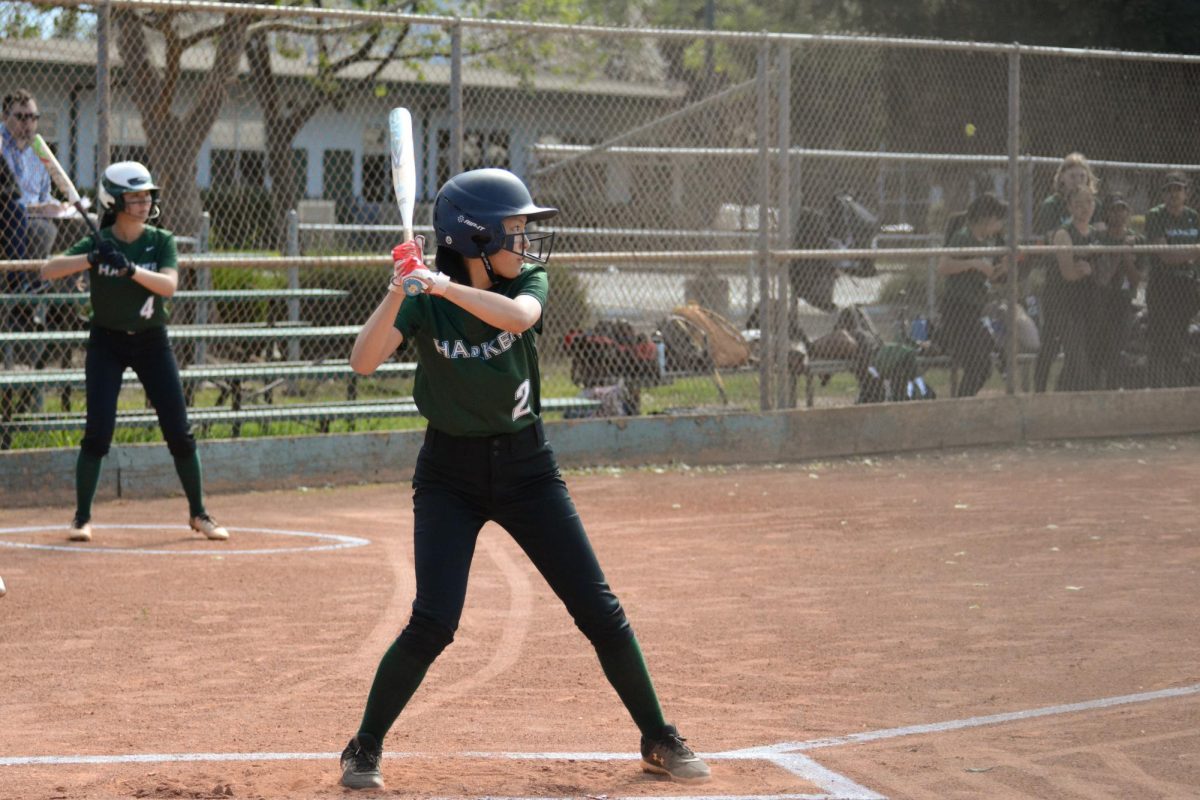
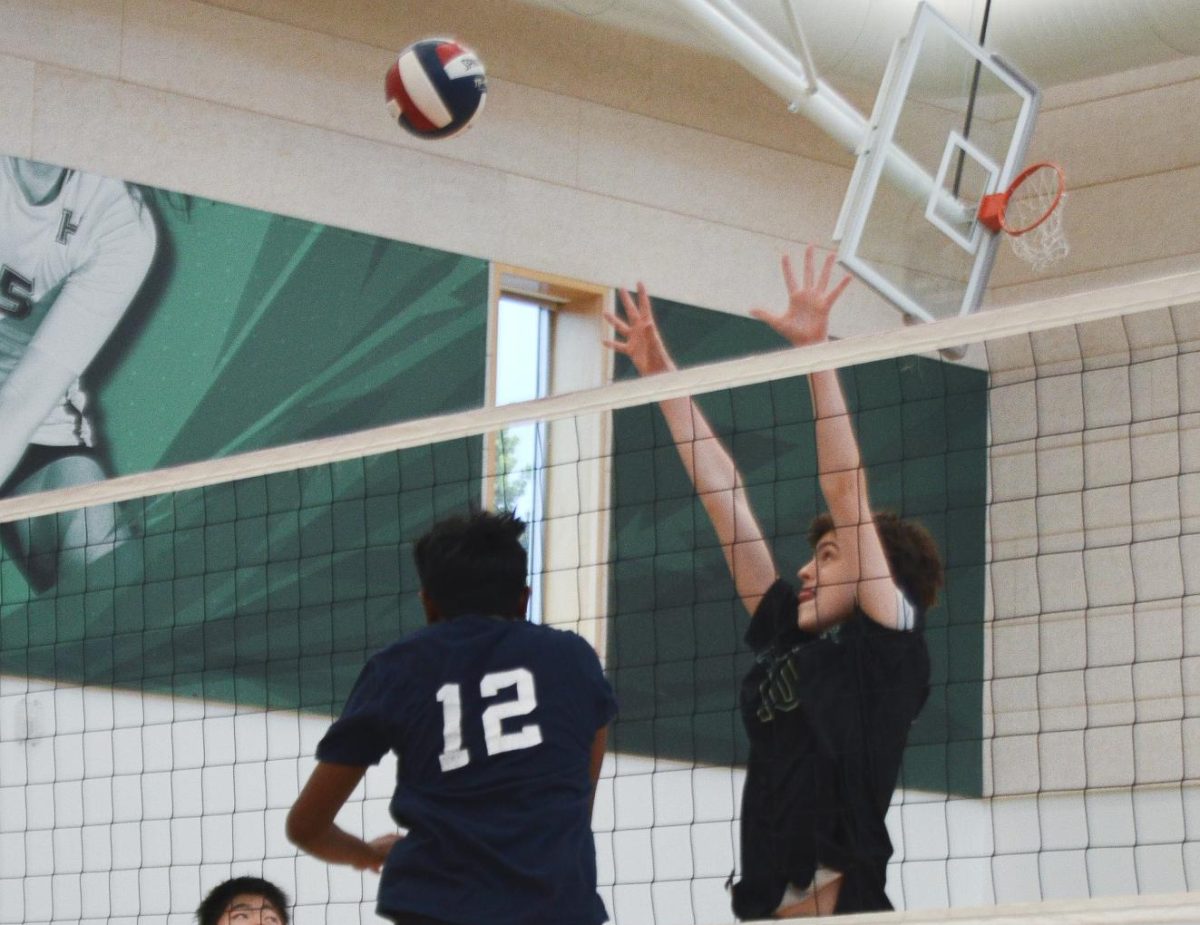
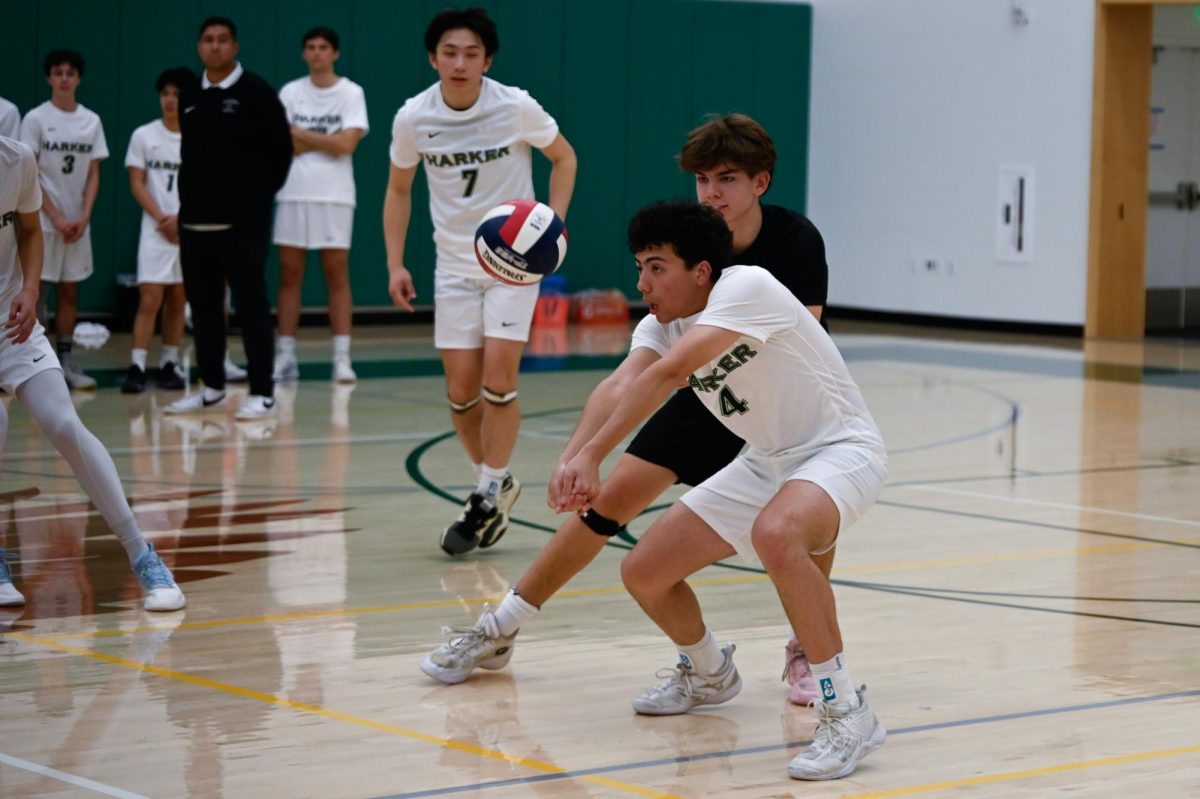





























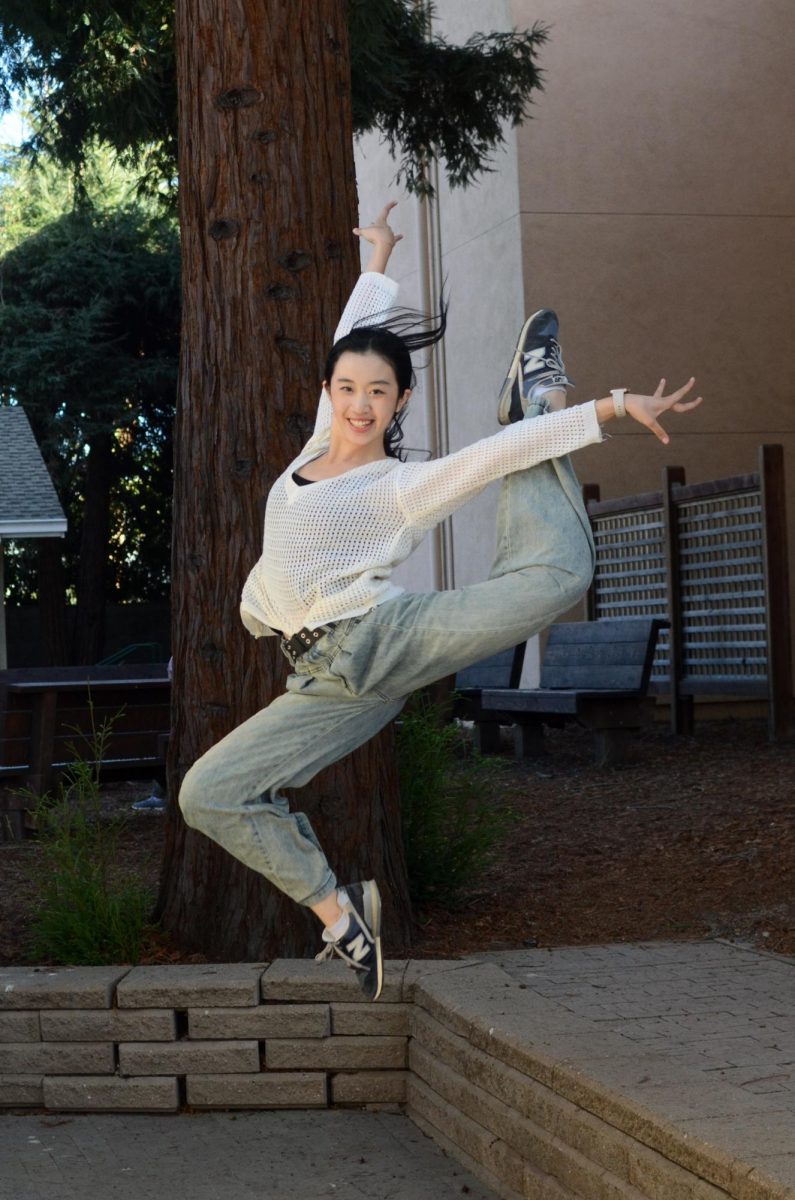
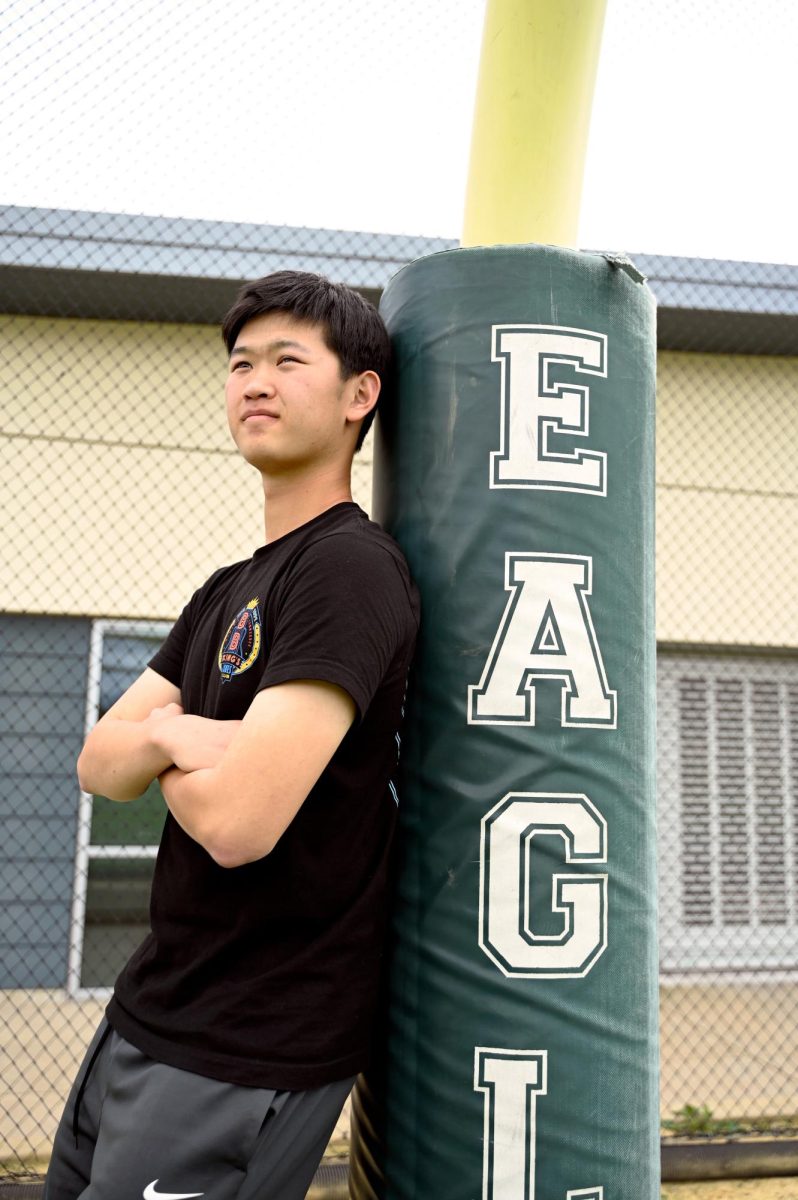
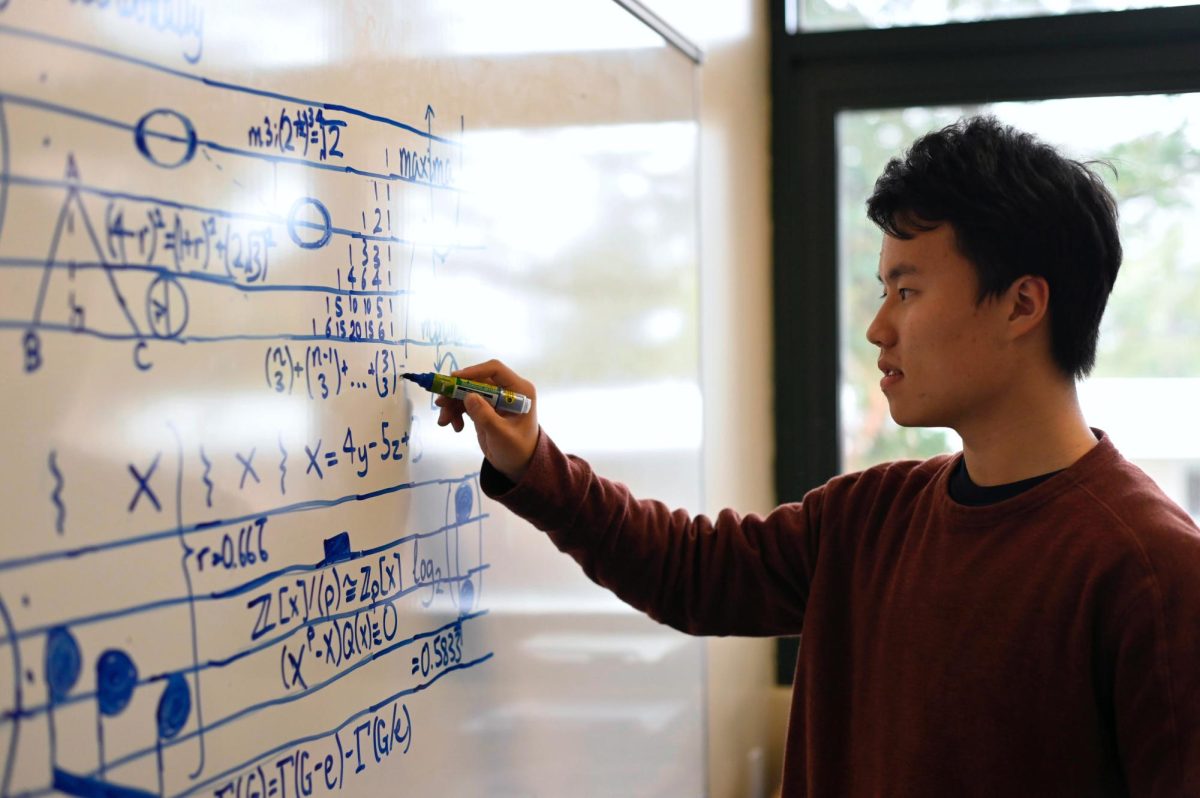
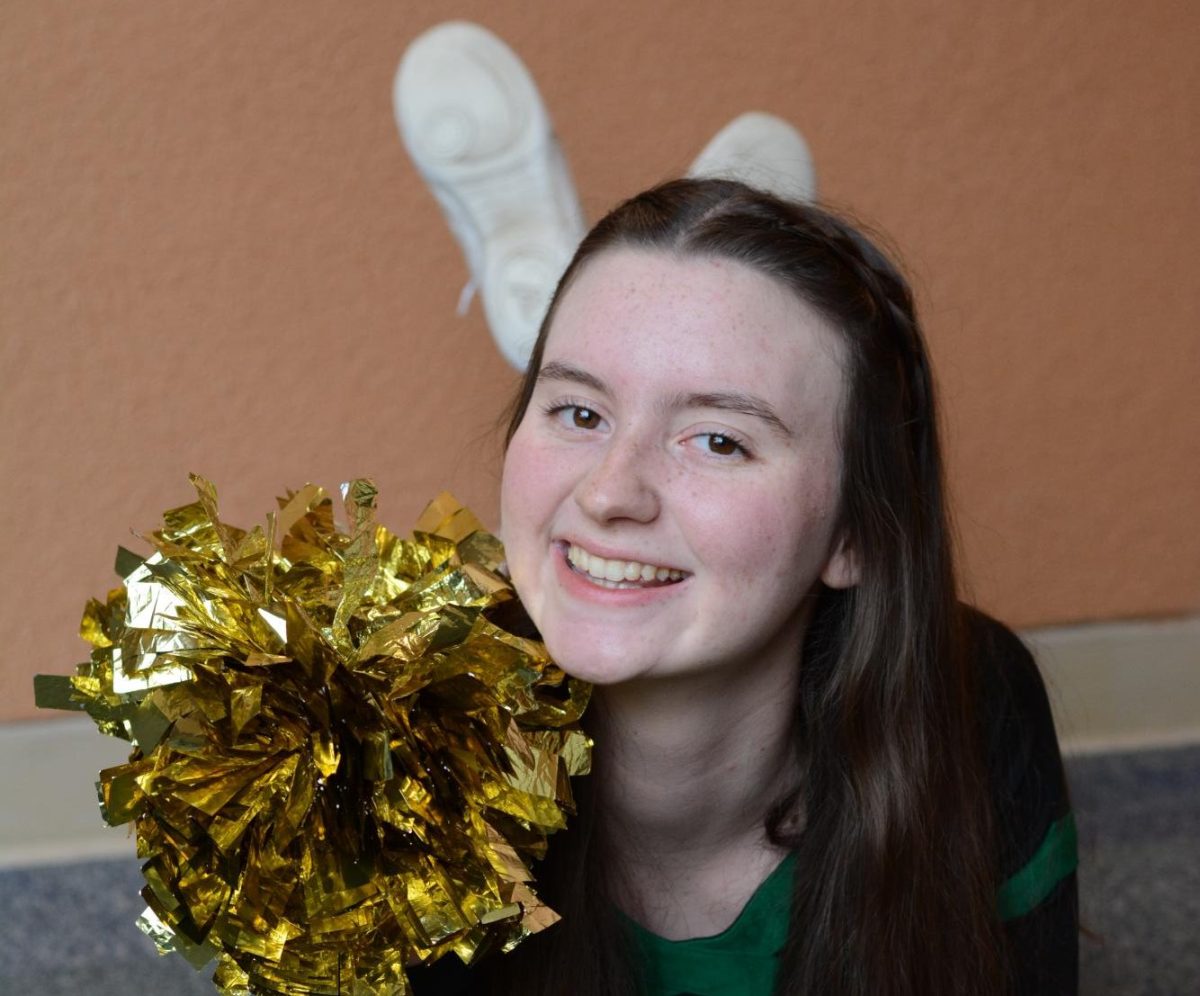








![“[Building nerf blasters] became this outlet of creativity for me that hasnt been matched by anything else. The process [of] making a build complete to your desire is such a painstakingly difficult process, but Ive had to learn from [the skills needed from] soldering to proper painting. Theres so many different options for everything, if you think about it, it exists. The best part is [that] if it doesnt exist, you can build it yourself, Ishaan Parate said.](https://harkeraquila.com/wp-content/uploads/2022/08/DSC_8149-900x604.jpg)


![“Animation just clicked in a way. I had been interested in art, but that felt different. [Animation] felt like it had something behind it, whereas previous things felt surface level. I wasnt making that crazy of things, but just the process of doing it was much more enjoyable, Carter Chadwick (22) said.](https://harkeraquila.com/wp-content/uploads/2022/08/Screen-Shot-2022-08-16-at-9.44.08-AM-900x598.png)


![“When I came into high school, I was ready to be a follower. But DECA was a game changer for me. It helped me overcome my fear of public speaking, and its played such a major role in who Ive become today. To be able to successfully lead a chapter of 150 students, an officer team and be one of the upperclassmen I once really admired is something Im [really] proud of,” Anvitha Tummala (21) said.](https://harkeraquila.com/wp-content/uploads/2021/07/Screen-Shot-2021-07-25-at-9.50.05-AM-900x594.png)



![“[Volleyball has] taught me how to fall correctly, and another thing it taught is that you don’t have to be the best at something to be good at it. If you just hit the ball in a smart way, then it still scores points and you’re good at it. You could be a background player and still make a much bigger impact on the team than you would think,” Anya Gert (’20) said.](https://harkeraquila.com/wp-content/uploads/2020/06/AnnaGert_JinTuan_HoHPhotoEdited-600x900.jpeg)

![“Im not nearly there yet, but [my confidence has] definitely been getting better since I was pretty shy and timid coming into Harker my freshman year. I know that theres a lot of people that are really confident in what they do, and I really admire them. Everyones so driven and that has really pushed me to kind of try to find my own place in high school and be more confident,” Alyssa Huang (’20) said.](https://harkeraquila.com/wp-content/uploads/2020/06/AlyssaHuang_EmilyChen_HoHPhoto-900x749.jpeg)













![“My slogan is ‘slow feet, don’t eat, and I’m hungry.’ You need to run fast to get where you are–you arent going to get those championships if you arent fast,” Angel Cervantes (12) said. “I want to do well in school on my tests and in track and win championships for my team. I live by that, [and] I can do that anywhere: in the classroom or on the field.”](https://harkeraquila.com/wp-content/uploads/2018/06/DSC5146-900x601.jpg)

![“I think getting up in the morning and having a sense of purpose [is exciting]. I think without a certain amount of drive, life is kind of obsolete and mundane, and I think having that every single day is what makes each day unique and kind of makes life exciting,” Neymika Jain (12) said.](https://harkeraquila.com/wp-content/uploads/2017/06/Screen-Shot-2017-06-03-at-4.54.16-PM.png)






